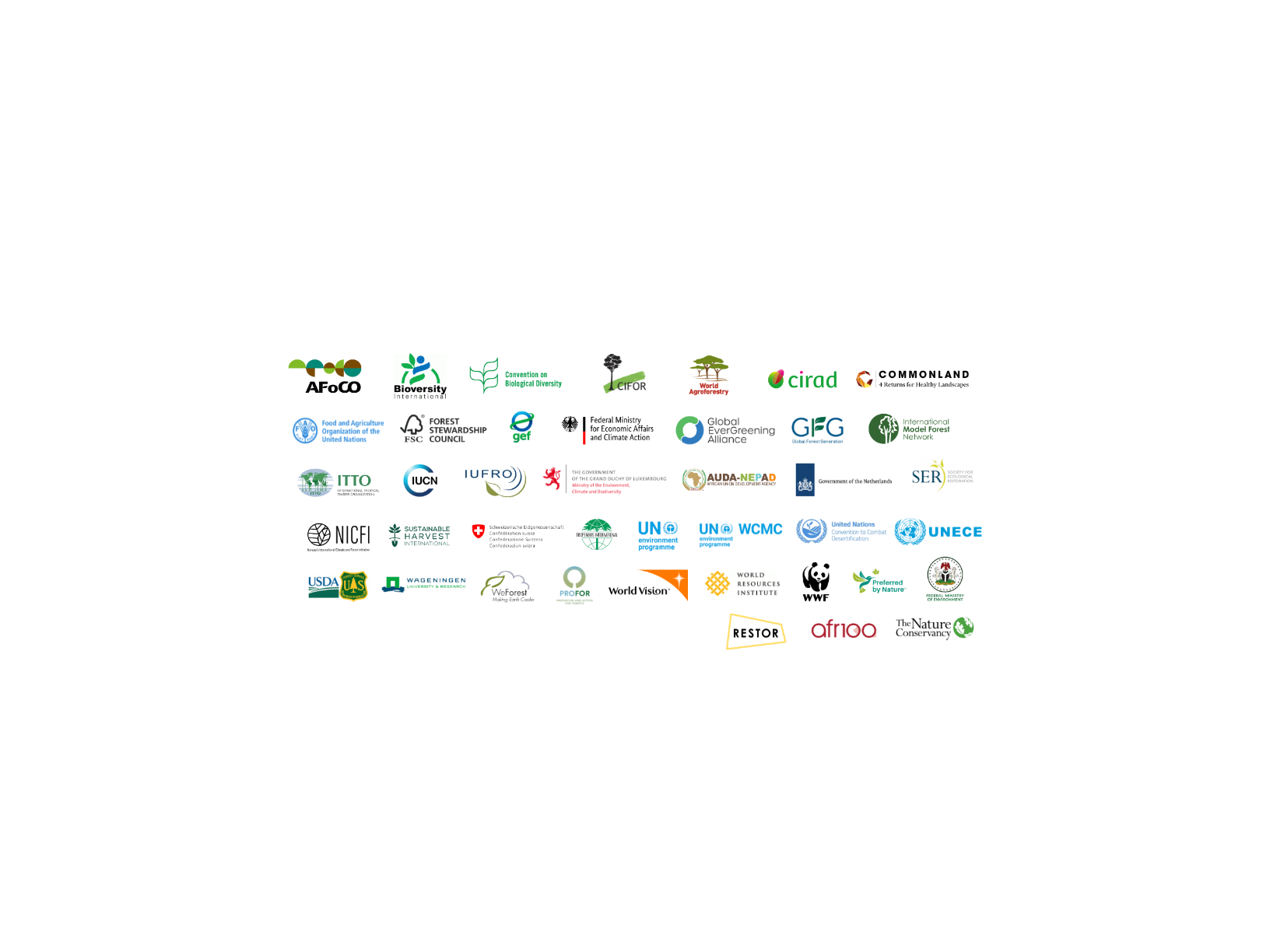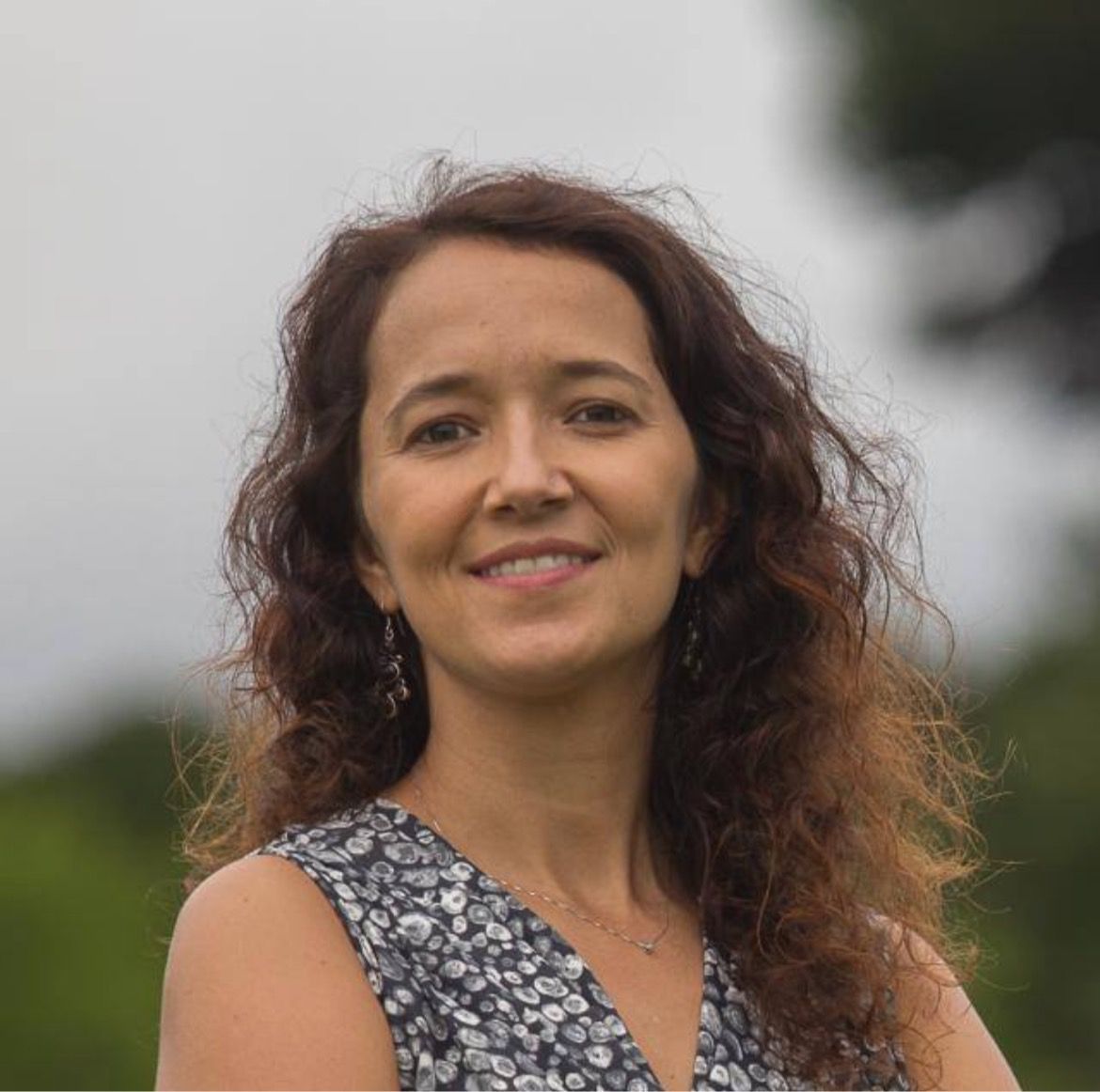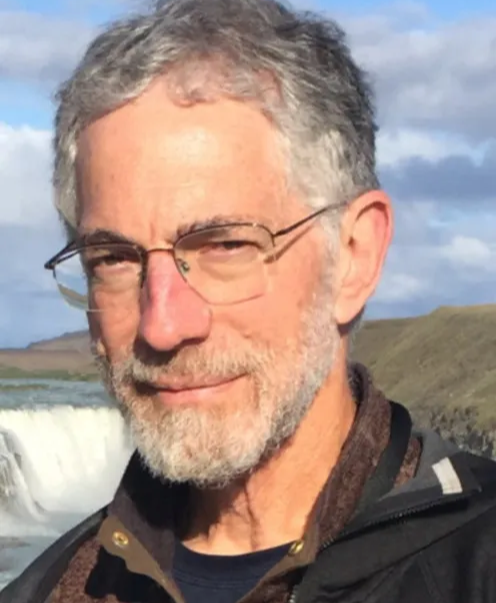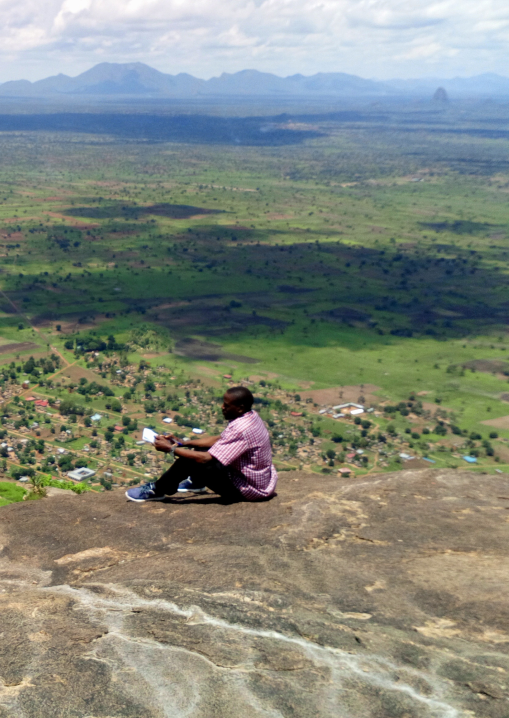
WHO WE ARE
Who we are
The GPFLR currently has 39 members. Membership consists of governments, international organizations, and non-governmental organizations. The GPFLR welcomes new members representing different geographies and with complementary objectives that contribute to an expanded impact of the partnership.
Our members’ profile responds to the following criteria:
Governments, CSOs, IOs, private sector associations or groups,
that have a global or regional-level scope with a significant portion of their work focused on forest and landscape restoration.
The GPFLR welcomes the participation of organizations that represent a multiplicity of national-level actors. Membership is not open to individuals.
Members are expected to actively contribute to generating the added value of the Partnership. By joining the Partnership, members commit to support the FLR principles and ensure that they underpin their restoration efforts. Members are expected to make tangible in-kind contributions responding to the GPFLR’s framework document and work plan.
For example, members can contribute by performing the following activities:
- Lead or participate in at least one of the activities that are part of the GPFLR’s work plan;
- Regularly share information, knowledge and expertise with other partners and contribute to broader FLR capacity development;
- Provide content for the GPFLR website;
- Support GPFLR-related events;
- Disseminate and promote Partnership products;
- Participate regularly in email discussions, or virtual or in-person meetings, including the annual members’ meeting;
- When possible, provide support to the e-Secretariat; allow staff elected to the Steering Committee to serve as part of their regular duties, and consider hosting GPFLR meetings (e.g. the Annual members meeting).
Benefits of membership
By participating in the Partnership, partners can highlight their achievements within the GPFLR and present them to a global audience, thereby contributing to agenda-setting and global discussions and action on FLR. They also gain access to the latest technical and policy information and tools related to the restoration of degraded and deforested lands while contributing to a growing community of FLR experts across sectors and countries. Additionally, partnership can provide many new opportunities for collaboration with members to advance specific FLR opportunities.
It should be noted that, as a voluntary Partnership, GPFLR does not:
- Provide funding or assist in the process of securing funding.
- Deliver restoration projects.
- Approve / disapprove of restoration pledges.
- Enforce / monitor restoration activities.

Interested in joining?
The GPFLR welcomes suitable member organizations. Applications are received on a rolling basis. Please review our membership ToRs for more information. Complete the form below.
GPFLR Governance

Chair
Anita Diederichsen
Anita Diederichsen is currently the Global Leader on Forest Landscape Restoration in WWF, as part of the Forest Practice from WWF International while embedded in WWF Brazil. Recently, Anita was the Co-Chair of the successful SER 2023, 10th World Conference on Ecosystem Restoration, held in Australia. At the moment she is a member of the Best Practices Task Force of the UN Decade on Ecosystem Restoration and Co-lead the Conservation Coaches Network (CCNET) in Latin America promoting the use of the Conservation Standards from the Global Measures Partnership. Previously she was a Director in Conserve Brasil, and before that she worked for more than 10 years at The Nature Conservancy. Anita chose to be a biologist, holds a master’s degree in Environmental Science from Sao Paulo State University, Brazil and second in Conservation and Rural Development, from the University of Kent, UK with a Chevening Scholarship Award from the Foreign and Commonwealth Office (FCO) UK. Anita has been dedicating all her career to nature conservation and restoration. She brings to this role more than 22 years of global nature conservation and landscape restoration experience on priority setting, strategy design, development, implementation, and monitoring.

Vice Chair
Jim Hallet
Jim Hallett is a research ecologist and Affiliate Professor in Ecosystem and Conservation Sciences at the University of Montana. He has served in several leadership roles at SER including as Chair (2018-2021), and he is also Vice-chair of the Global Partnership on Forest and Landscape Restoration (GPFLR). For more than 30 years, Jim has been examining the consequences of land management beginning with landscape composition and context, corridor use, and riparian buffers. He then focused on approaches for evaluating effectiveness of restoration interventions. With his interests in improving restoration outcomes, he collaborated on the second edition of the Society for Ecological Restoration’s International Principles and Standards for Ecological Restoration. Jim is currently working on development of strategies for prioritizing restoration interventions for large-scale initiatives including forest and landscape restoration (FLR). Evaluating FLR programs is complex, and Jim has been collaborating with other GPFLR partners in reviewing how the recently revised FLR principles are being incorporated into monitoring frameworks. He has been a collaborator on initiatives related to the UN Decade including the FAO’s Best Practice Task Force. Jim received his PhD from Texas Tech University, where he studied community ecology.
Steering Committee
The Steering Committee is comprised of eight partner representatives to enhance a regional and gender-balanced voice for the partnership in its decision making, supporting the Chair, Vice-Chair and e-Secretariat to drive the process forward. Decisions of the Steering Committee are based on consensus.
E-secretariat
The E-secretariat supports the Steering Committee and the implementation of the GPFLR's workplan. It is comprised of staff from GPFLR members, anchored by a small Secretariat staff based at the International Union for Conservation of Nature (IUCN). E-secretariat members contribute with skills ranging from communications, outreach, research and strategic partnerships, all in benefit of advancing the GPFLR's goals

